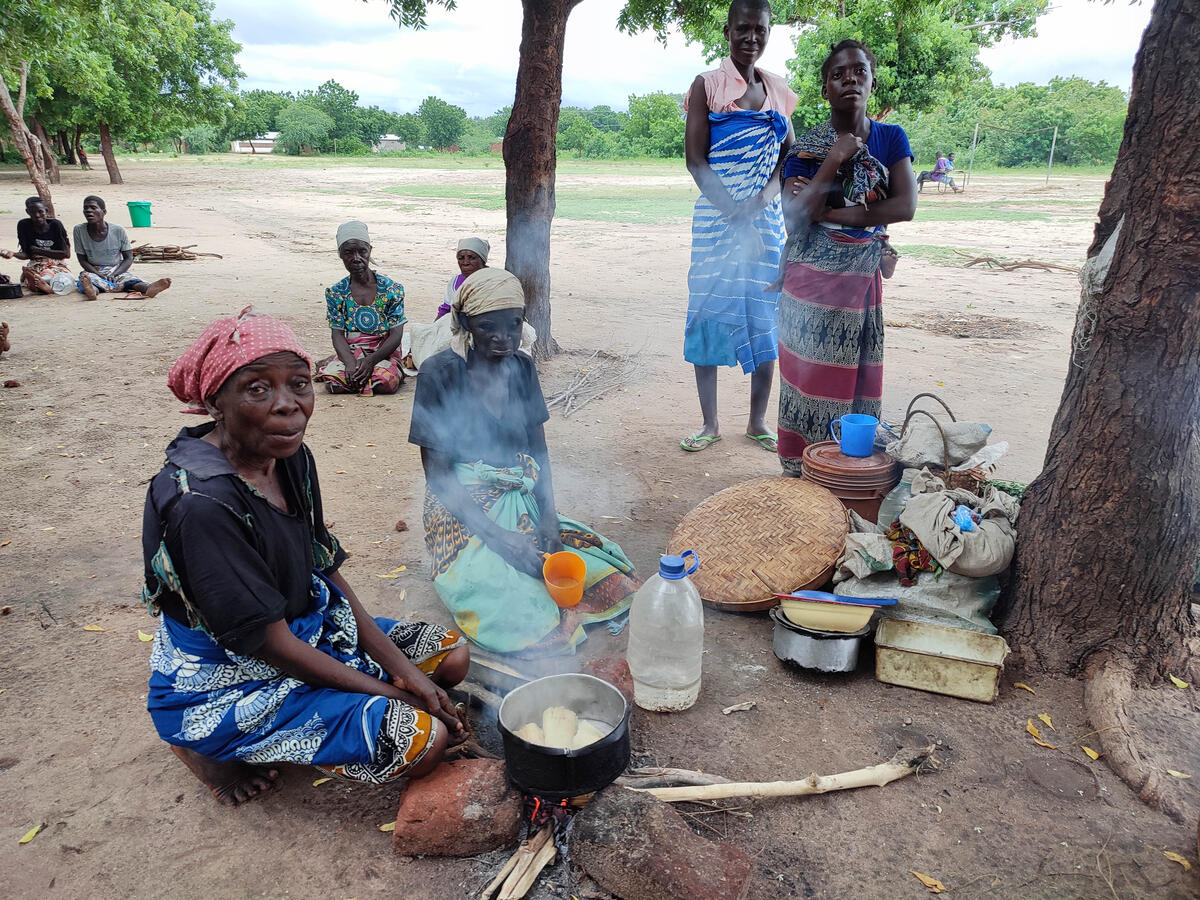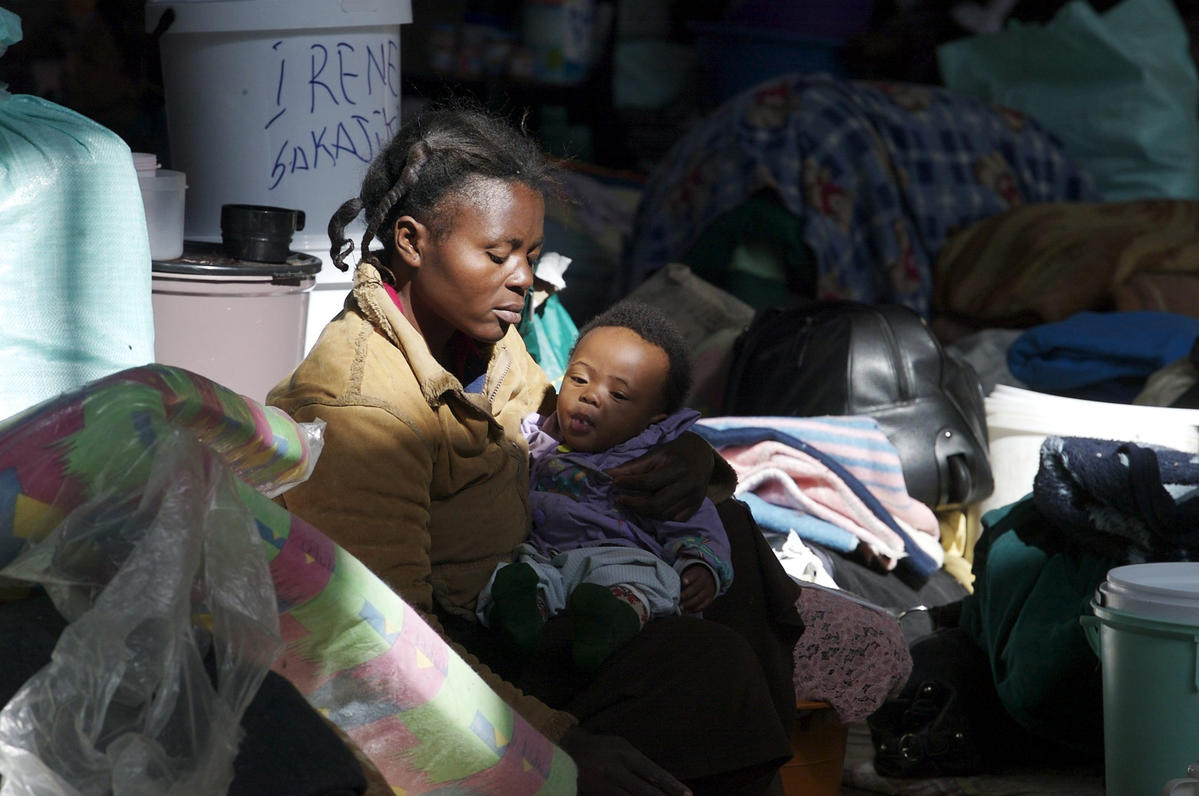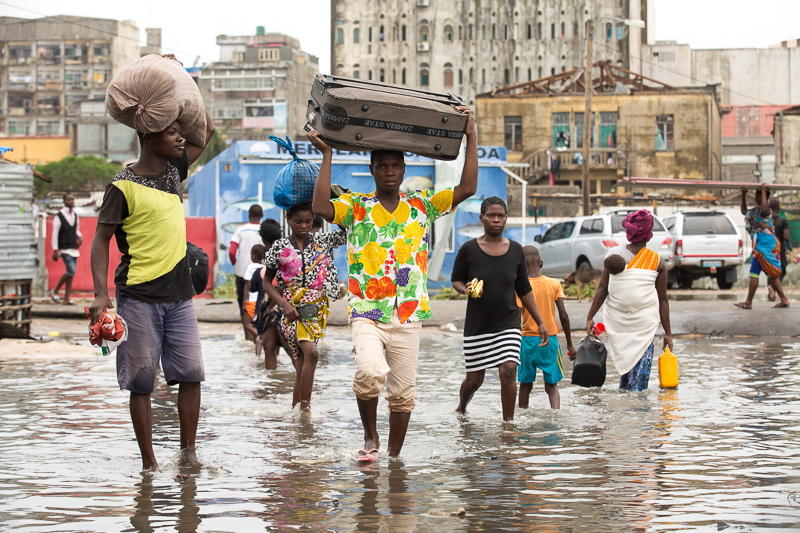UNHCR warns of human suffering due to Malawi’s ‘back to camp’ refugee policy
UNHCR warns of human suffering due to Malawi’s ‘back to camp’ refugee policy

Dzaleka refugee camp in Malawi, designed to accommodate up to 12,000 refugees and asylum-seekers, currently hosts more than 50,000.
GENEVA - UNHCR, the UN Refugee Agency, is extremely concerned about the recent arrest and detention of 377 refugees, including 117 children, on 17 May, and their subsequent forced relocation to the Dzaleka refugee camp by the Malawi authorities.
The arrests and closure of all shops and businesses owned by refugees and asylum-seekers in a suburb of Lilongwe, Malawi’s capital, follows a directive issued by the Government on 27 March 2023 to enforce its encampment policy. The directive orders all refugees and asylum-seekers living in urban and rural areas to return voluntarily to the camp by 15 April 2023 or face enforced relocation.
Some 35 individuals who returned to Dzaleka refugee camp following the authorities’ intervention recounted to UNHCR teams how quickly they had to flee their homes, leaving behind everything to escape arrest. Another family said that, amid the chaos, they ran in different directions and got separated from their daughter, 8, for two days before being reunited.
Refugees and asylum-seekers were initially held in Maula Central Prison before being transferred in government vehicles to Dzaleka on 19 and 20 May.
“We strongly reiterate our call to the authorities to rescind their relocation decision as the existing structures in Dzaleka refugee camp are already stretched to the limit and cannot accommodate more refugees in a dignified manner,” said Valentin Tapsoba, Director of UNHCR’s Regional Bureau for Southern Africa. “This will result in immense human suffering and create a new dependency on humanitarian assistance.”
Any returns to Dzaleka refugee camp should be done in accordance with human rights principles and not result in the detention of children.
To date, 505 individuals have returned to the camp since the government issued the order in 2021. This includes the 377 refugees and asylum-seekers who were forcibly relocated to the camp last week.
In the camp, some refugees have returned to their previous homes while others are being hosted by families and relatives. Approximately 110 people are being accommodated at the camp’s reception centre in congested rub halls with insufficient water and sanitation facilities, creating safety and health risks.
Dzaleka refugee camp already faces challenges as health services, water, shelter and sanitation facilities are inadequate to serve the exiting population. Relocating self-sufficient and productive refugees and asylum-seekers to Dzaleka will only exacerbate these problems as their prospects of rebuilding their lives will dwindle.The relocation will also negatively affect refugee children enrolled in schools across the country should they have to join overcrowded classes in the camp.
The camp, which was originally established to accommodate up to 12,000 refugees, was, as of 22 May, home to more than 50,600 refugees mainly from the Democratic Republic of the Congo, Burundi and Rwanda, which represents the total refugee population in Malawi.
Of those, some 8,000 refugees and asylum-seekers are estimated to have been living in Malawi’s rural and urban areas for extended periods of time, some of them since 2003, having arrived in the country as far back as 1994. Most of them are well integrated into the local community. They have become self-reliant while contributing to the local economy through running small-scale businesses and engaging in other entrepreneurial activities.
Malawi has committed to the Comprehensive Refugee Response Framework and pledged at the Global Refugee Forum in December 2019 to incorporate refugee matters into its national development agenda, reform the legal and policy framework, cover registration and documentation of refugees, enhance refugee status determination and support the self-reliance of refugees through increased livelihood activities.
As of 23 May, UNHCR had only received 9 per cent of the US$ 27.2 million required to adequately support refugees and asylum-seekers in Malawi this year. This has crippled UNHCR’s ability to meet the protection, assistance and livelihood needs of the people it serves. Due to funding shortfalls, UNHCR does not have the resources to meet the needs of the returnees, including the upgrade of transit shelters and the provision of household items.
For more information, please contact:
- In Pretoria, Pumla Rulashe, [email protected], + 27 82 377 5665
- In Pretoria, Helene Caux, [email protected], + 27 82 376 5190
- In Geneva, Matthew Saltmarsh, [email protected], +41 79 967 99 36
- In Geneva, Olga Sarrado, [email protected], +41 797 402 307








